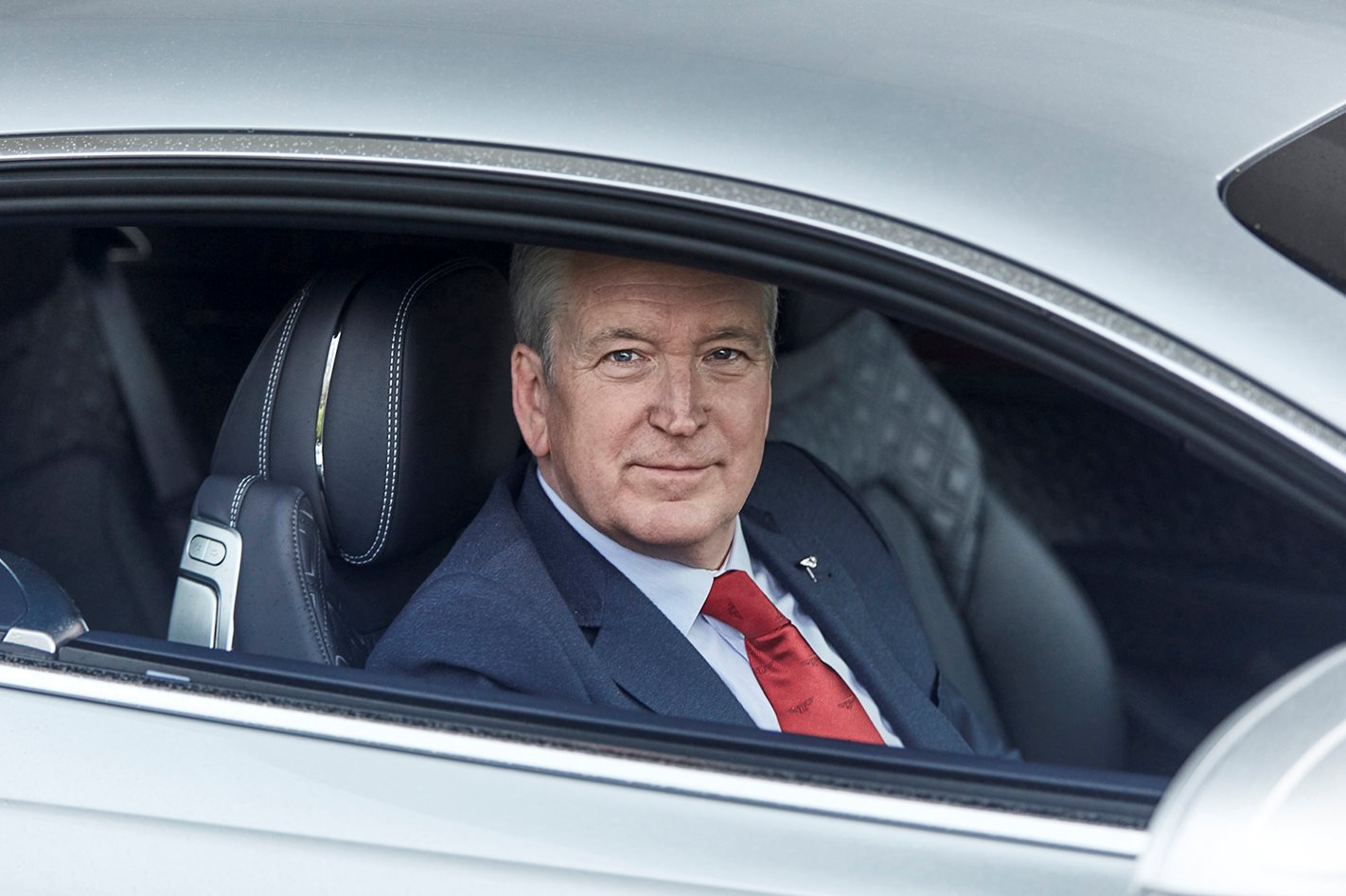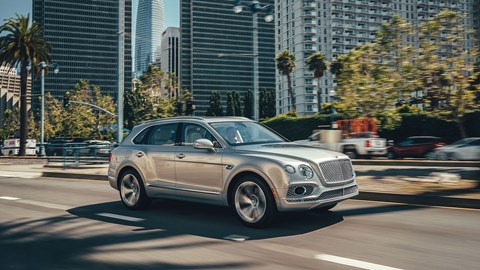► Bentley chief believes UK consumers being given bad information
► ICE engine ban could do more harm than good
► He believes hybrids should be exempt from 2035 ban
Bentley Chairman and CEO Adrian Hallmark has thrown the challenge to UK politicians to grant hybrids a stay of execution instead of banning them along with petrol and diesel engines by 2035.
When asked to speculate on what will happen in 2035 when the UK’s proposed ban on internal combustion engines comes into effect, Hallmark (pictured below) said that while the deadline is achievable, the resulting demonisation of hybrids could do more bad than good in the interim.
Bentley Bentayga hybrid review

'Scientifically it's possible, and actually there are real benefits ... even though the car is not the biggest polluter ... because you reduce the concentration of certain emissions as well. We're all up for it,' the Bentley boss said, 'and even the timing … it's probably possible. But it's what you do in the meantime that matters.
Best hybrid cars
'Here's the challenge back, and I'm giving this to the politicians: What mix of cars would you like to have on the road [by 2035]?
'If [electric cars are at] two per cent [market penetration] now, and we're going to have no combustion engines in 2035 ... on the day that we switch, no more combustion engines can be sold... what would you like the fleet of cars to be on the road at that moment in time?
'Because you've got 15 years from now to change what's going to be on the road.'
Hallmark’s point is that politicians are doing too little to encourage the uptake of more fuel-efficient vehicles such as plug-in hybrids (PHEVs) and mild-hybrids between now and the 2035 deadline. It’s a 15 year period during which millions of new cars will hit the road.
In 2019, just over 2.3 million new cars were sold in Britain, of which 37,850 were battery electric vehicles, 34,734 were plug-in hybrids (PHEVs), and 58,578 were mild-hybrid petrol or diesel models.
Sales of battery electric and mild-hybrids rose last year, but plug-in hybrid registrations fell, with the removal of a GBP3500 Plug-In Car Grant incentivising the sales of PHEVs exacerbated by many of the leading plug-in models being off-sale as new, WLTP-compliant versions were introduced.

That means 2.17 million of those new cars had no form of fuel-saving hybridisation. Extrapolate that out to 2035, and that’s another 32.5 million petrol and diesel engines polluting the air before the ban comes into place.
Bringing the deadline further forward isn’t the answer, says Hallmark. Supporting hybrids is.
'Currently, you're dis-incentivising petrol, you're dis-incentivising diesel, you're dis-incentivising hybrids. You're confusing people about what to buy.
'There's only a certain percentage [of people] that can actually afford, use or charge a battery-electric vehicle. The danger is they buy nothing for as long as possible and you end up with an older fleet with more pollution for longer.
'So, should we discuss hybrids? If you could take 30 to 50 percent of the pollution out of the fleet before we even get 2035, would that be a good idea?'
In 2019, the fleet average CO2 of all new cars sold in the UK rose 2.7 percent to 127.9g/km.
This article originally appeared on whichcar.com.au